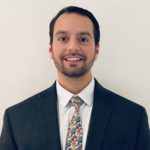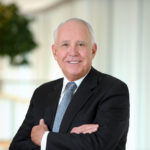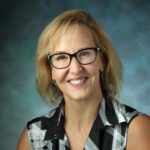Listen now to Dr. Skarupski interview Dr. Kirch:

It’s been hard for Dr. Skarupski and I to contain our excitement this week! I’ve been working with her as the podcast’s producer and web content manager since the Faculty Factory launched earlier this year.
We both couldn’t be happier (or more grateful) that Dr. Darrell Kirch, president and CEO of the Association of American Medical Colleges (AAMC) took the time to have a candid, in-depth and enlightening talk as part of the Faculty Factory podcast. (We released that episode today along with this blog post.)
I had the pleasure of talking with Dr. Skarupski after this interview to learn about what in that conversation inspired her. I was also curious as to how she went about asking Dr. Kirch (surely a man of a million priorities) to join her on the podcast.


Courageous Presence
Dr. Skarupski said she was inspired to ask Dr. Kirch on the podcast after inviting Janet Bickel, MA, to lead a workshop for the Hopkins Junior Faculty Leadership Program. Ms. Bickel is a well-known leadership and career development coach with 45 years of experience in academic medicine.
Ms. Bickel’s talk focused on communicating in the modern workplace and she talked about the importance of being be able to find our voices, especially when we don’t feel particularly confident. Within this talk, she discussed courageous presence.
Ms. Bickel’s session encouraged Kim to think big and walk out of her comfort zone. Much to our delight, Dr. Kirch was more than happy to join the podcast and quickly made finding time for the Faculty Factory podcast a priority. Dr. Kirch has always believed in the importance of faculty development throughout his career—as you’ll learn from today’s episode.
(In other good news: Ms. Bickel will be on the podcast soon! Stay tuned!)
A Valued Commodity
In this interview, Dr. Skarupski wanted to know how the president of the AAMC (and our nations’ medical school deans) views the work of faculty development professionals. Through his leadership roles, including interacting with the Council of Deans (COD) on a regular basis, she knew he’d be the perfect source.You’ll hear that faculty affairs is indeed a highly-valued commodity in the eyes of AAMC leadership.
This episode also brings light to the fact that one institution’s overall decrease in faculty problems and complaints in the mid-1990s was attributed to the institutionalization of faculty development practices. You’ll also learn that the Group on Faculty Affairs (GFA) is a highly-respected group in the AAMC.
Selfless Mentors
Dr. Kirch’s views on mentorship was something I found important and so did Dr. Skarupski.
“The mentor that Dr. Kirch had stuck with me,” Dr. Skarupski said. “His unselfishness was remarkable. He saw something in Dr. Kirch about his ability to build teams. He found that leadership potential in him.”
Dr. Kirch’s mentor had an ability to put his personal interests aside for the betterment of Dr. Kirch’s career.
“One of the best things [mentors and sponsors] sometimes do for us is kick us out of the nest,” he said.
“And I think [my mentor] saw that I was comfortable, and I was doing fine where I was, but he wanted me to test my limits more. And that was a very generous and gracious thing for him to do.”
